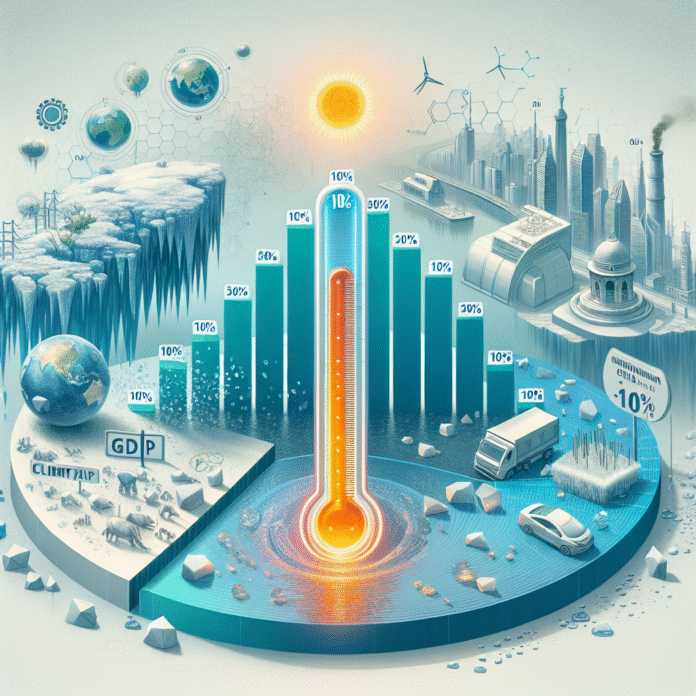Climate Change’s Economic Impact on India
Climate Change May Result in 10% GDP Loss for India by 2100, Survey Reveals
A recent survey indicates that climate change could significantly impact India’s economy, potentially leading to a staggering reduction of 10% in its Gross Domestic Product (GDP) by the year 2100. This alarming forecast underscores the urgent need for comprehensive climate action and sustainable development practices across the country.
The survey, conducted by leading environmental researchers, highlights various factors contributing to this economic downturn. Rising temperatures, erratic weather patterns, and an increase in the frequency of extreme weather events are expected to affect agriculture, infrastructure, and public health, which are critical components of India’s economy.
In particular, the agricultural sector, which employs nearly half of the Indian workforce, is projected to face severe consequences due to unpredictable monsoon patterns and prolonged droughts. This could lead to lower crop yields, increased food insecurity, and heightened rural poverty. Furthermore, the impact on water resources could exacerbate the situation, as many regions already struggle with water scarcity.
Infrastructure is another area of concern. The increasing intensity of natural disasters such as floods, cyclones, and heatwaves threatens to damage roads, bridges, and buildings, requiring substantial investments in repair and adaptation. This could divert funds from other critical areas, hindering overall economic growth.
Public health is also at risk; the rise in temperatures may lead to an increase in heat-related illnesses and vector-borne diseases, putting additional strain on healthcare systems. Vulnerable populations, particularly the elderly and those with pre-existing health conditions, may face heightened risks, further complicating efforts to achieve equitable economic development.
To mitigate these potential losses, experts emphasize the importance of adopting proactive measures, including investing in renewable energy sources, enhancing climate resilience in agriculture, and improving urban infrastructure. Additionally, fostering community awareness and engagement in sustainability practices can play a crucial role in addressing the challenges posed by climate change.
In conclusion, the findings of this survey serve as a wake-up call for policymakers and stakeholders in India. Immediate and sustained action is essential to combat climate change and safeguard the nation’s economic future. By prioritizing environmental sustainability, India can not only protect its GDP but also pave the way for a more resilient and prosperous future for all its citizens.


